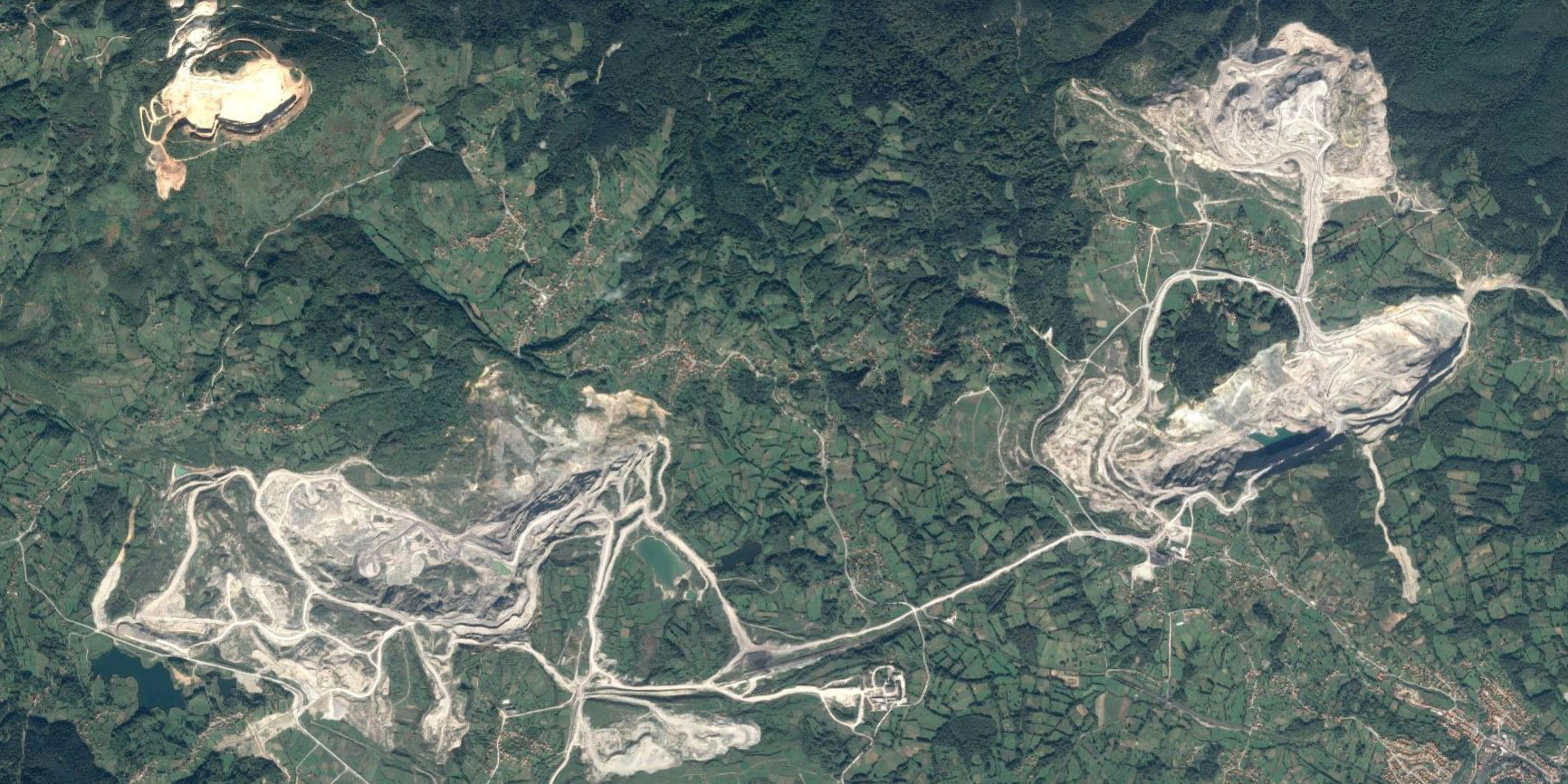Banovici lignite power plant, Bosnia and Herzegovina
The 350 MW Banovići coal power plant project was planned alongside the existing Banovići mine just a few kilometres away from Tuzla by the predominantly state-owned RMU Banovići (Banovići Brown Coal Mines).

Stay informed
We closely follow international public finance and bring critical updates from the ground.
Background
The 350 MW Banovići coal power plant project was planned alongside the existing Banovići mine just a few kilometres away from Tuzla by the predominantly state-owned RMU Banovići (Banovići Brown Coal Mines). In 2015, a construction contract was signed with China’s Dongfang, the same company which built the Stanari plant. As of early 2024 it seems highly unlikely that the plant will go ahead, but it has not been officially cancelled.
Mystery economics
The project’s economics have been kept under wraps and no feasibility study is publicly available.
Financing was sought from the Industrial and Commercial Bank of China (ICBC), but was never signed. The project is supposed to cost EUR 405 million. It also appears that a guarantee by the Federation of BiH government would be required, raising questions about compliance with State aid rules under the Energy Community Treaty.
'Hostages of coal'
An AlJazeera report on the situation of people affected by the coal infrastructure in Tuzla and Banovici.
Local language only.
Legal violations
The environmental permit for the Banovići power plant was renewed in early 2016, but failed to cover numerous issues and prescribe precise mitigation measures. NGO Ekotim therefore filed a court case seeking to annul the permit in April 2016. The court case was rejected in late 2019 on the spurious grounds that a Sarajevo-based NGO cannot complain about a project sited near Tuzla – a verdict that was appealed at the Federal Supreme Court, as well as being subject to a complaint to the Aarhus Convention. Before the court ruled on the case, the permit expired in early 2021, and does not appear to have been renewed.
No transboundary consultation was carried out for the plant’s environmental assessment, even though this is required under the Espoo Convention. After a complaint was made to the Convention’s Implementation Committee, Bosnia and Herzegovina pledged to carry out transboundary consultations for any renewal of the plant’s environmental permit.
Scarce water resources
In order to obtain water for the Banovići plant, the small existing Ramići lake would be expanded into a larger reservoir. However it is not clear that the runoff from the surrounding hills could provide enough water. Another issue is the structural soundness of the earth dam which is planned to hold back the water at Ramići.
Initial proposals included using water from the Turija river to fill the reservoir during dry periods, however this would then deprive Modrac, and thus the Tuzla power plant and the people of Tuzla, of a significant source of water. More recent proposals have focused on taking water from Lake Breštica which is located in the Spreča river basin, but this would have the same result. The issue remains unsolved. For this reason Ekotim filed a court complaint against the environmental permit for the reservoir in April 2016, which was also rejected in late 2019 and was appealed to the Federal Supreme Court.
In September 2019 it was reported that RMU Banovići had failed to obtain a water consent for the Ramići reservoir from the Tuzla cantonal authorities, as it had tried to extend the validity of a previous one which had already expired.
Construction permit refused
The project has received on-and-off high level support from the Federal authorities in Bosnia-Herzegovina. However in December 2017, it was announced that the project had been refused a preliminary construction permit due to unresolved issues around water consumption, coal supply, flue gases, ash disposal and other issues.
Latest news
Trading profit for health: exploring Bosnia’s toxic relationship with coal
Bankwatch in the media | 6 December, 2019In Europe, there is still a place where coal is transported by a steam locomotive: the Banovići mine in Bosnia-Herzegovina.
Read moreTrading profit for health: exploring Bosnia’s toxic relationship with coal
Bankwatch in the media | 6 December, 2019Source: Trading profit for health: exploring Bosnia’s toxic relationship with coal
Read moreConstruction permit denied for Banovići coal power plant in Bosnia and Herzegovina
Blog entry | 15 December, 2017Plagued by a number of unsolved issues, the Chinese-backed Banovići lignite power plant in Bosnia and Herzegovina has been dealt a major blow.
Read moreRelated publications
Balkan energy projects with Chinese involvement – state of play, May 2016
Briefing | 5 May, 2016 | Download PDFSee a more recent version of this briefing >>
Possible coal and energy State aid cases in Energy Community countries based on publicly accessible information
Briefing | 8 June, 2015 | Download PDFBy signing the Energy Community Treaty in 2005, countries in the Western Balkans, Ukraine and Moldova agreed to abide by the European Union’s competition rules. But a number of energy sector investments are being planned that may not so far have taken adequate account of state aid rules. This briefing includes case studies of projects from Bosnia-Herzegovina, Kosovo, Montenegro, Serbia, and Ukraine. See related materials including a more detail briefing, a press release and a slideshow at:
Risks for coal and electricity investments in the Western Balkans, Ukraine and Moldova due to state-aid rules
Study | 8 June, 2015 | Download PDFBy signing the Energy Community Treaty in 2005, countries in the Western Balkans, Ukraine and Moldova agreed that the European Union’s competition rules are to be applied also within their territory. A number of energy sector investments are being planned that may not so far have taken adequate account of State aid rules. This briefing therefore provides a summary to draw attention to relevant requirements of EU law and highlight the risks of failure to take them into account when planning investments. The account when planning investments.
